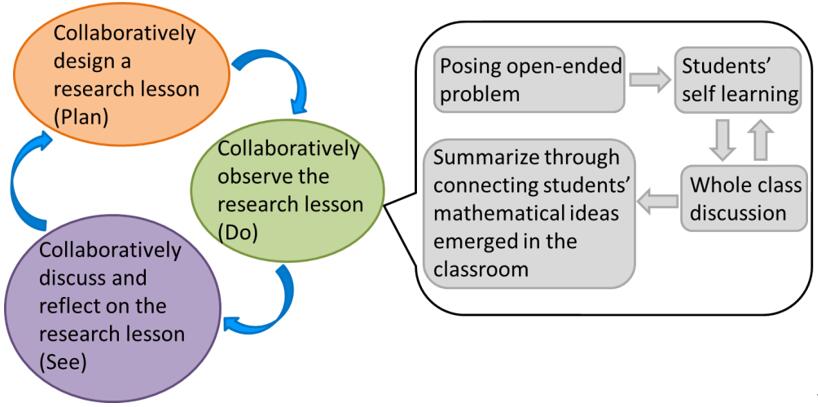Mathematics Educators’ Perspective on Pre-service Mathematics Teachers’ Professional Competencies
Abstract
This research was designed to study pre-service mathematics teachers' professional competencies to assist student learning by using Lesson Study and Open Approach innovations from mathematics educators' perspectives. A total of 35 mathematics educators have more than three years of experience not only in terms of utilizing the Lesson Study and Open Approach innovations but also in providing training to the pre-service mathematics teachers were selected. The researchers employed three data collection methods, namely document analysis, a survey using a questionnaire, and interviews. The obtained data from three sources was designed with the principle of triangulation. The findings of this research were presented under the three steps of the Thailand Lesson Study Model. In the first step, “Collaboratively Design Research Lesson Plan”, pre-service teachers can create problem situations that associated with the students' real world, can analyze the context of the problem situations, can analyze keywords that initiate students' ideas, can anticipate students' ideas, and can prepare teaching materials to support students' ideas. This is followed by the second step as “Collaboratively Observe Research Lesson”. The findings revealed that pre-service teachers can observe students’ ideas when their students were solving mathematical problems, can notice students’ difficulties in their learning, can give feedback using words that match with students’ proficiency level, give students opportunities to show how to think and present their ideas, listen to and accept students’ opinions, and taking notes on students’ ideas or pieces of learning evidence. The findings of the final step namely “Collaboratively Reflect on Teaching Practice” showed that pre-service teachers could reflect the learning outcomes by correlating students’ ideas with the instructions.
References
Inprasitha, M. (2004). Teaching by using open approach in mathematics classroom of Japan. KKU Journal of Mathematics Education, 1, p.3.
Inprasitha, M. (2009). Lesson study: Innovation for developing teacher and students. Doctor of Education thesis. Khon Kaen, Thailand: Khon Kaen University.
Inprasitha, M. (2011). One feature of adaptive lesson study in Thailand: Designing a learning unit. Journal of Science and Mathematics Education in Southeast Asia, 34(1), 47-66.
Inprasitha, M. (2014). Processes of problem solving in school mathematics. Center for Research in Mathematics Education (CRME), Faculty of Education, Khon Kaen University, Thailand: Pen printing. [in Thai]
Manmai, T., Inprasitha, M., Changsri, N., & Pattanajak, A. (2020). Development of reasoning habits through Lesson Study and Open Approach teaching practices. International Educational Research, 3(2), 29-36. https://doi.org/10.30560/ier.v3n2p29
OECD. (2012). Education at a glance 2012: OECD indicators. Retrieved from OECD iLibrary | Education at a Glance 2012: OECD Indicators (oecd-ilibrary.org) https://doi.org/10.1787/eag-2012-en
Takahashi, A., & Yoshida, M. (2004). Ideas for establishing Lesson-Study communities. Teaching Children Mathematics, May 2004, 426-443. https://doi.org/10.5951/TCM.10.9.0436
Teachers’ Council of Thailand. (2018). Southeast Asia Teachers Competency Framework (SEA-TCF). Bangkok, Thailand: Teachers’ Council of Thailand.
Thong, C. W. (2017). Teacher competency in Chinese Independent High Schools: A case study in Penang state (Unpublished doctoral dissertation). Universiti Sains Malaysia, Penang, Malaysia.
Tsafe, A. K., Yusha’u, M. A., & Eya, S. D. (2014). Psychological skills: Stringent factors in understanding learning abilities of mathematics learners. Education, 4(1), 1-6. https://doi.org/105923/j.edu.20140401.01
van Es, E., & Sherin, M. (2010). The influence of video clubs on teachers’ thinking and practice. Journal of Mathematics Teacher Education, 13, 155-176. https://doi.org/10.1007/s10857-009-9130-3


This work is licensed under a Creative Commons Attribution 4.0 International License.
Copyright for this article is retained by the author(s), with first publication rights granted to the journal.
This is an open-access article distributed under the terms and conditions of the Creative Commons Attribution license (http://creativecommons.org/licenses/by/4.0/).








1.png)

















